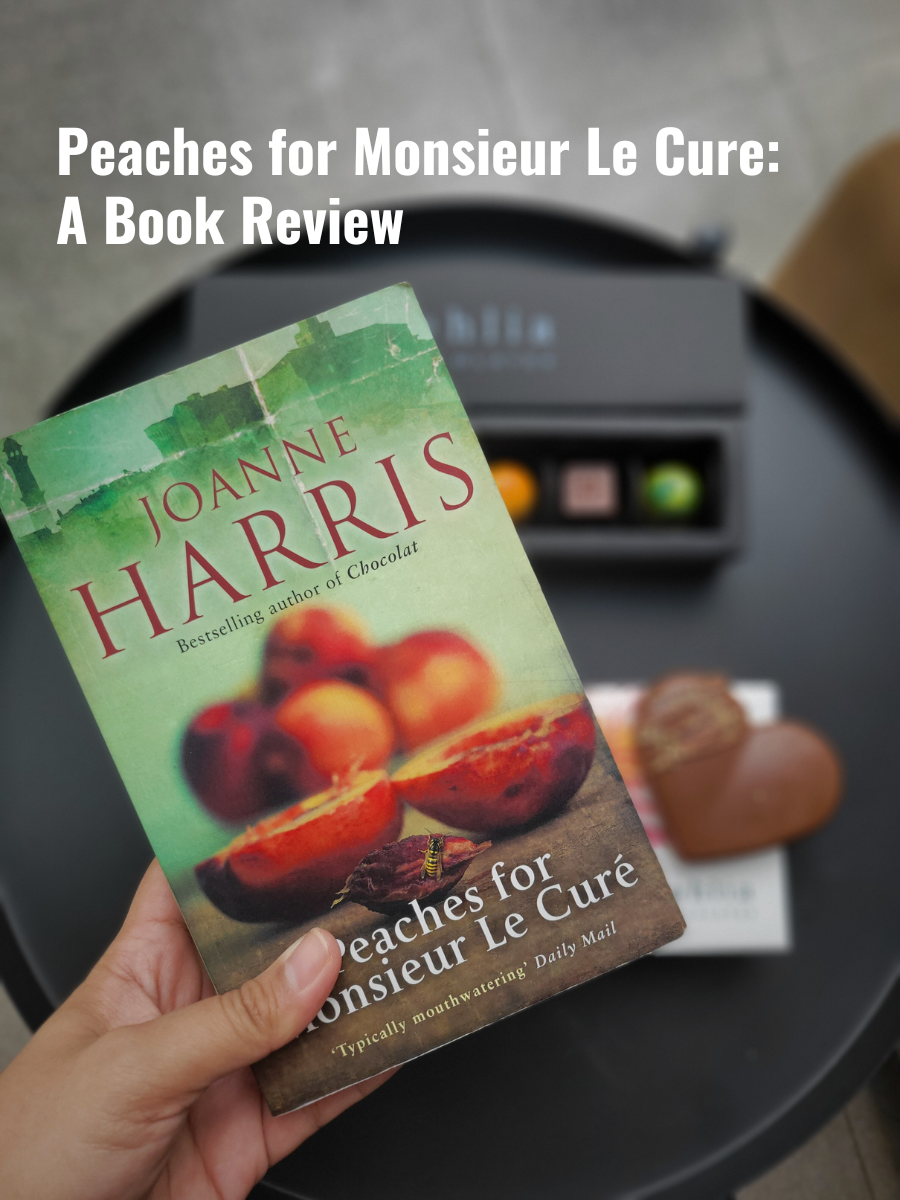Peaches for Monsieur Le Cure by Joanne Harris Book Review
Over summer break, my niece and I bonded over book thrifting and started a little tradition we called “Judge a Book by Its Cover,” where we’d choose books solely based on their covers. As a chocolate shop owner, Chocolat was one of my first picks. I’d seen parts of the movie before, but I honestly couldn’t remember much about it except that it had Johnie Depp. It turned out to be a good thing, because I was blown away by Harris’s writing. Oddly though, I thought that Johnnie Depp played the part of Reynaud. So I read the book with the image of Depp as the priest. (lol)
A few books later, I found myself back at our favorite used book shop and spotted more titles by Harris. Peaches for Monsieur le Curé is the sequel to Chocolat, and it felt like a quiet joy to be reunited with Vianne, her daughters, and familiar faces in Lansquenet (yes, even Paul-Marie). There are new characters, too, and the story dives deeper into the changes the town has gone through.
Just like in Chocolat, Harris weaves in that sensory magic around food, though this time it’s peaches instead of chocolates. While not as indulgent as chocolate, the fruit still played a tender role. Vianne and I might be kindred spirits; she spends her days making chocolates and jams. Both I am very passionate about as well.
Unlike Chocolat, which transported me to a completely new world, Peaches for Monsieur le Curé felt like returning to your hometown but it seems different. Lansquenet had changed. The dynamics shifted, the community evolved, and new tensions arose. This time, Harris introduces an influx of Muslim immigrants, mostly from Morocco, and how their presence reshaped the small French village. It’s interesting to see that the immigration themes she touched on back in 2012 still feel so timely in 2025. Europe, especially France, continues to face these same questions of integration, culture, and coexistence.
I really appreciated how Harris handled these layers. She didn’t simplify the conversation into good versus bad or right versus wrong. Instead, she presented nuance. That of a story of shared humanity, the complexities of cultural identity, and the very real challenges faced by both immigrants and locals. She also touched on themes like women’s rights, oppression, and violence in a way that felt careful but honest. For what started as a slow burn, the ending turned surprisingly tense and gripping. Definitely a page-turner toward the finish.
That said, I did feel the book dragged in parts. With about a hundred more pages than Chocolat, it felt longer than it needed to be. And while I usually enjoy character-rich stories, this one introduced a lot of new names on top of the old ones, which made it harder to stay connected. I was also looking forward to hearing more about the old characters like Gillaume and his new dog.
In Chocolat, the cast had this effortless chemistry! Their quirks played off each other beautifully. Even Reynaud, who was so rigid, felt fully human in all the best and worst ways. In this book, though, Inès didn’t quite click for me. She was meant to be dark and mysterious, but the attempt to redeem or soften her character didn’t really land.
Still, I’d call this an excellent read overall. Would I recommend it? Yes, but only if you’ve read Chocolat first. The character and setting groundwork happens there, and it’s hard to appreciate the depth of Peaches without that background. As dreary as Lansquenet sounds on the surface, I fell in love with its quiet charm and the peculiar but endearing people who live there.
